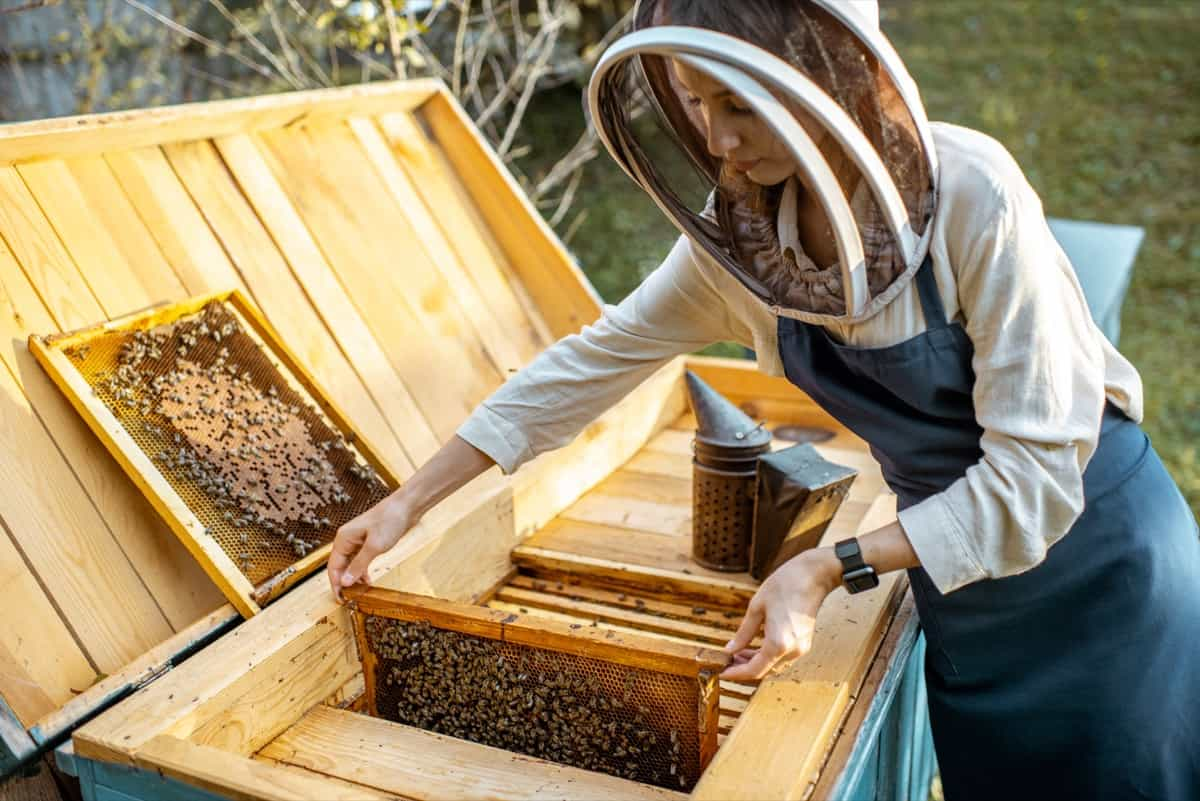
Apiculture, or beekeeping, is more than just a hobby; it's a vital practice for our environment and agriculture. Did you know that honeybees are responsible for pollinating about one-third of the food we eat? These buzzing insects play a crucial role in maintaining biodiversity and food production. From ancient Egypt to modern times, beekeeping has evolved significantly. Whether you're curious about the history, the science behind honey production, or the fascinating behaviors of bees, there's a lot to learn. Ready to dive into the world of apiculture? Here are 29 intriguing facts that will make you appreciate these tiny yet mighty creatures even more.
What is Apiculture?
Apiculture, also known as beekeeping, is the practice of maintaining bee colonies, typically in hives. It’s an ancient art that has evolved over centuries. Here are some fascinating facts about this buzzing activity.
-
Apiculture dates back to ancient Egypt. Evidence shows that Egyptians practiced beekeeping around 4,500 years ago.
-
The term "apiculture" comes from Latin. It derives from "apis," meaning bee.
-
Honeybees are not native to the Americas. European settlers introduced them in the 17th century.
-
Beekeeping is crucial for pollination. Bees pollinate about 75% of the fruits, nuts, and vegetables grown in the U.S.
-
A single bee colony can produce 60 to 100 pounds of honey annually. That’s a lot of sweetness!
The Life of a Honeybee
Honeybees have a structured social system with specific roles. Each bee has a job that contributes to the hive's success.
-
A queen bee can lay up to 2,000 eggs per day. She’s the mother of all bees in the colony.
-
Worker bees are all female. They do everything from cleaning the hive to foraging for nectar.
-
Drones are male bees. Their primary role is to mate with the queen.
-
Worker bees have a short lifespan. They live about six weeks during the busy summer months.
-
Bees communicate through dance. The "waggle dance" tells other bees where to find food.
The Importance of Bees
Bees play a vital role in our ecosystem. Their work goes beyond making honey.
-
Bees are responsible for one-third of the food we eat. Without them, many crops would fail.
-
Bees help maintain biodiversity. They pollinate wild plants, which supports various animal species.
-
Beeswax has many uses. It’s used in candles, cosmetics, and even as a food additive.
-
Propolis, a resinous substance collected by bees, has medicinal properties. It’s used for its antibacterial and anti-inflammatory effects.
-
Royal jelly, produced by worker bees, is a superfood. It’s fed to the queen and has health benefits for humans.
Challenges in Apiculture
Beekeeping is not without its challenges. Beekeepers face numerous threats to their hives.
-
Varroa mites are a significant threat. These parasites can devastate bee colonies.
-
Pesticides harm bees. Chemicals used in agriculture can kill bees or disrupt their ability to forage.
-
Climate change affects bees. Altered weather patterns can impact flowering times and food availability.
-
Colony Collapse Disorder (CCD) is a mysterious phenomenon. Entire colonies disappear, leaving behind honey and brood.
-
Habitat loss reduces bee populations. Urbanization and agriculture reduce the areas where bees can forage.
Fun Facts About Beekeeping
Beekeeping has some quirky and fun aspects that make it an interesting hobby or profession.
-
Beekeepers wear white suits. Bees are less likely to attack light colors.
-
Smoke calms bees. It masks alarm pheromones, making bees less aggressive.
-
Bees have five eyes. Two large compound eyes and three smaller simple eyes.
-
Honey never spoils. Archaeologists have found edible honey in ancient Egyptian tombs.
-
Bees can recognize human faces. They use a process similar to how we do.
Benefits of Beekeeping
Beekeeping offers numerous benefits, both for individuals and the environment.
-
Beekeeping supports local agriculture. Bees help pollinate crops, increasing yields.
-
It’s a sustainable practice. Beekeeping requires minimal resources and has a low environmental impact.
-
Beekeeping can be therapeutic. Many find the practice calming and rewarding.
-
Honey has health benefits. It’s a natural sweetener with antibacterial properties.
The Buzz on Apiculture
Apiculture, or beekeeping, is more than just honey production. It plays a crucial role in pollination, which supports biodiversity and agriculture. Beekeepers manage hives to ensure the health of bee colonies, which face threats from pesticides, diseases, and habitat loss. Honeybees are fascinating creatures with complex social structures and communication methods like the waggle dance. They produce not only honey but also beeswax, royal jelly, and propolis, each with unique uses and benefits. Understanding the importance of bees can inspire efforts to protect them. Whether you're interested in starting your own hive or just want to appreciate these tiny workers, there's always more to learn about apiculture. So next time you see a bee buzzing around, remember the vital role it plays in our ecosystem. Keep supporting local beekeepers and spreading awareness about the importance of bees.
Was this page helpful?
Our commitment to delivering trustworthy and engaging content is at the heart of what we do. Each fact on our site is contributed by real users like you, bringing a wealth of diverse insights and information. To ensure the highest standards of accuracy and reliability, our dedicated editors meticulously review each submission. This process guarantees that the facts we share are not only fascinating but also credible. Trust in our commitment to quality and authenticity as you explore and learn with us.
